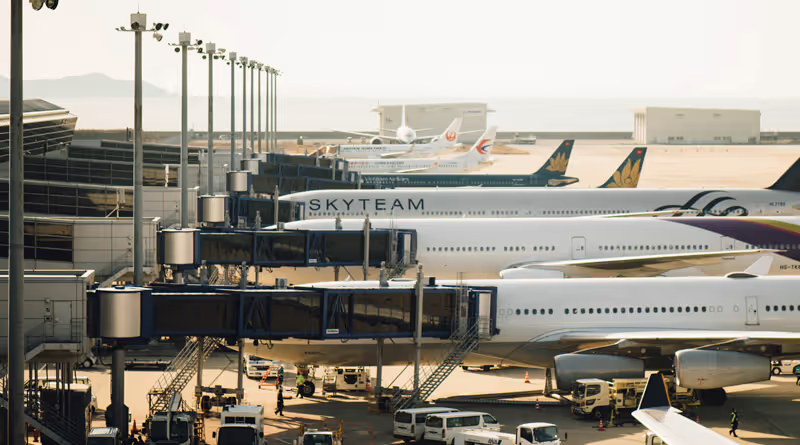What Just Happened to the Travel Ban?
Last Updated: September, 2017.
The travel ban just got bigger.
President Trump added three new countries to the travel ban list: Chad, North Korea, and Venezuela.
"Making America Safe if my number one priority. We will not admit those into our country we cannot safely vet."
— Donald J. Trump (@realDonaldTrump) September 24, 2017
Let’s rewind a bit and figure out why these new countries were added.
In March 2017, President Trump issued Executive Order 13780. The order initiated the Department of Homeland Security to conduct a review of 200 countries to determine which countries pose the largest security threat to the United States.
In July, the DHS review was completed, and then on September 24, 2017, President Trump announced indefinite travel restrictions on the three new countries: Chad, North Korea, and Venezuela. The five original countries remained on the list: Iran, Libya, Syria, Somalia and Yemen. However, Sudan, an original member of the group, was removed.

The ACLU announced that it will challenge President Trump’s new travel ban. Originally, the Supreme Court was going to hear arguments regarding the legality of the travel ban on October 10. However, the Supreme Court announced that they are postponing hearing any arguments until both the government and those opposed, file new briefs addressing the new restrictions.
Critics have noted that this new ban doesn't seem to really address its anti-terrorism and public safety goals entirely, as countries like Saudi Arabia, the United Arab Emirates, Afghanistan, and Pakistan remain off the list.
In this article we'll break down this much-discussed presidential proclamation, section-by-section:
- Section 1: Establishes baseline requirements countries have to meet.
- Section 2: Lists suspended countries Section 3: Provides some exceptions and limitations.
- Section 4: Countries can get off the list.
- Section 5: DHS will report to the President.
- Section 6: Provides various rules for enforcement.
- Section 7: Ban starts on October 18.
- Section 8: Ban will continue even if one section is invalid.
- Section 9: Ban will not impede the executive agencies.
SECTION 1: Establishes baseline requirements for countries
From the get-go, the executive order states that the purpose of the reinvigorated travel ban is to protect United States citizens from terrorist attacks and public safety threats. In order to determine which country poses a terrorist or security threat, DHS assessed each country under the following categories:
- Identity-management information: the country in question will need to have thorough in-country security processes that ensure the integrity of documents. For example, Homeland Security will assess whether the country issues electronic passports and how the government detects fraudulent documents.
- National security and public-safety information: the country in question will need to inform the United States as to whether a citizen posses a security threat by providing the U.S. background information on the traveler.
- National security and public-safety risk assessment: the U.S. will conduct an overall assessment of whether a country is a terrorist or security threat.
After assessing the 200 countries using the above-mentioned criteria, 47 countries were deemed to be “inadequate” and “at-risk.” They were given 50 days to improve their security procedures by applying the security protocols above.
Following the 50-day trial period, countries which failed were placed on travel ban due to their “inadequate” traveling security protocols in place.
After the trial period, the Secretary of Homeland Security recommended a list of countries that require travel restrictions. Not all restrictions are created equal though. Some countries such as Iran will still permit student visas, but all nonimmigrants and immigrants will be barred entry from North Korea and Syria.
SECTION 2: Chad, Iran, Libya, North Korea, Syria, Venezuela, Yemen, Somalia are suspended
Nationals from the following countries have restricted entry into the United States because they have not adequately addressed the security criteria listed in section 1. Highlights from the Executive Order detailing why certain countries were included are found below:
- Chad
- “Chad does not adequately share public-safety and terrorism-related information and fails to satisfy at least one key risk criterion.”
- Iran
- “Iran regularly fails to cooperate with the United States Government in identifying security risks, fails to satisfy at least one key risk criterion, is the source of significant terrorist threats, and fails to receive its nationals subject to final orders of removal from the United States.”
- Libya
- “Libya fails to satisfy at least one key risk criterion and has been assessed to be not fully cooperative with respect to receiving its nationals subject to final orders of removal from the United States.”
- North Korea
- “North Korea does not cooperate with the United States Government in any respect and fails to satisfy all information-sharing requirements.”
- Syria
- “Syria has significant inadequacies in identity-management protocols, fails to share public-safety and terrorism information, and fails to satisfy at least one key risk criterion.”
- Venezuela
- “Venezuela has adopted many of the baseline standards identified by the Secretary of Homeland Security and in section 1 of this proclamation, but its government is uncooperative in verifying whether its citizens pose national security or public-safety threats.”
- Yemen
- “The government of Yemen fails to satisfy critical identity-management requirements, does not share public-safety and terrorism-related information adequately, and fails to satisfy at least one key risk criterion.”
- Somalia
- “Somalia has significant identity-management deficiencies. For example, while Somalia issues an electronic passport, the United States and many other countries do not recognize it. A persistent terrorist threat also emanates from Somalia's territory.”
SECTION 3: Provides some exceptions and limitations
The ban only applies to foreign nationals who:
- Live outside the United States
- Do not have a valid visa as per section 7
- Do not qualify for a visa as per section 6(d)
Exceptions to the ban include:
- Lawful resident of United States
- Documentation that is not a visa, such as a transportation letter
- Dual nationality
- Diplomatic passports
- Those with asylum
Waivers can be granted to those seeking entry on a case-by-case basis. For example, if the individual seeking entry can prove that she is not a security risk, has been issued visas previously for work or study, and if the person’s entry would be in the United State’s interest. Several more exceptions are listed under section 3(c).
SECTION 4: Countries can get off the list
Every 180 days, the Secretary of Homeland Security, in consultation with the Secretary of State, will reassess whether or not a country should remain on the banned list, using criteria from section 1. The restrictions placed on the country can be modified in various ways, whether that be by removing all restrictions or only maintaining limited restrictions on the country.
SECTION 5: DHS will report to the President
The Secretary of Homeland Security will send periodic reports and updates to the President on the United State’s procedures implemented for vetting foreign nationals, such as:
- The biometric and biographic data is the government collecting;
- The number of errors made in collecting this information;
- The procedures related to screening and vetting set forth by the Department of State's Bureau of Consular Affairs.
SECTION 6: Provides various rules for enforcement
The ban will comply with applicable laws and regulations, working with both domestic and international organizations, “to ensure efficient, effective, and appropriate” implementation. This section also notes that foreign nationals who have a credible claim of fear or persecution will have an opportunity for entry. This section addresses a slew of miscellaneous enforcement measures such as:
- The Secretary of State and the Secretary of Homeland Security will comply with all applicable laws and regulations.
- No immigrant or nonimmigrant visa issued before the applicable effective date under section 7 will be revoked.
- Any individual whose visa was marked revoked or marked canceled as a result of Executive Order 13769 of January 27, 2017 (Protecting the Nation from Foreign Terrorist Entry into the United States) will be permitted to have a traveling document.
- This proclamation shall not apply to an individual who has been granted asylum by the United States, to a refugee who has already been admitted to the United States, or to an individual granted withholding of removal or protection under the Convention Against Torture.
SECTION 7: Ban starts on October 18
On October 18, 2017, all foreign nationals from Iran, Libya, Syria, Yemen, Chad, North Korea, and Venezuela will have restricted entry into the United States.
SECTION 8: Ban will continue even if one section is invalid
This section essentially states that if any portion of the ban is held to be invalid, barring the invalid sections, the remainder of the ban will still remain in place.
SECTION 9: Ban will not impede the executive agencies
This proclamation will not be read in any way that impairs the function of the executive department or its agencies.
Key Takeaways
- Unlike the 120-day refugee ban, this travel restriction could remain indefinitely.
- Most of the countries included are primarily Muslim.
- This ban implements a more methodological framework explaining why certain foreign nationals are banned, more so than the previous travel ban.
- Countries will continuously be added or removed from the banned list depending on whether they improve their in-country security protocols.
Related
General Immigration Information
Articles
Begin Your Immigration Journey Today with SimpleCitizen!
Why spend more time and money on countless legal headaches, when you could just use SimpleCitizen and focus on what matters most – being with those you love! Find new opportunities, start new adventures, and bring your family together with SimpleCitizen today!

